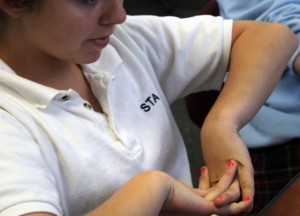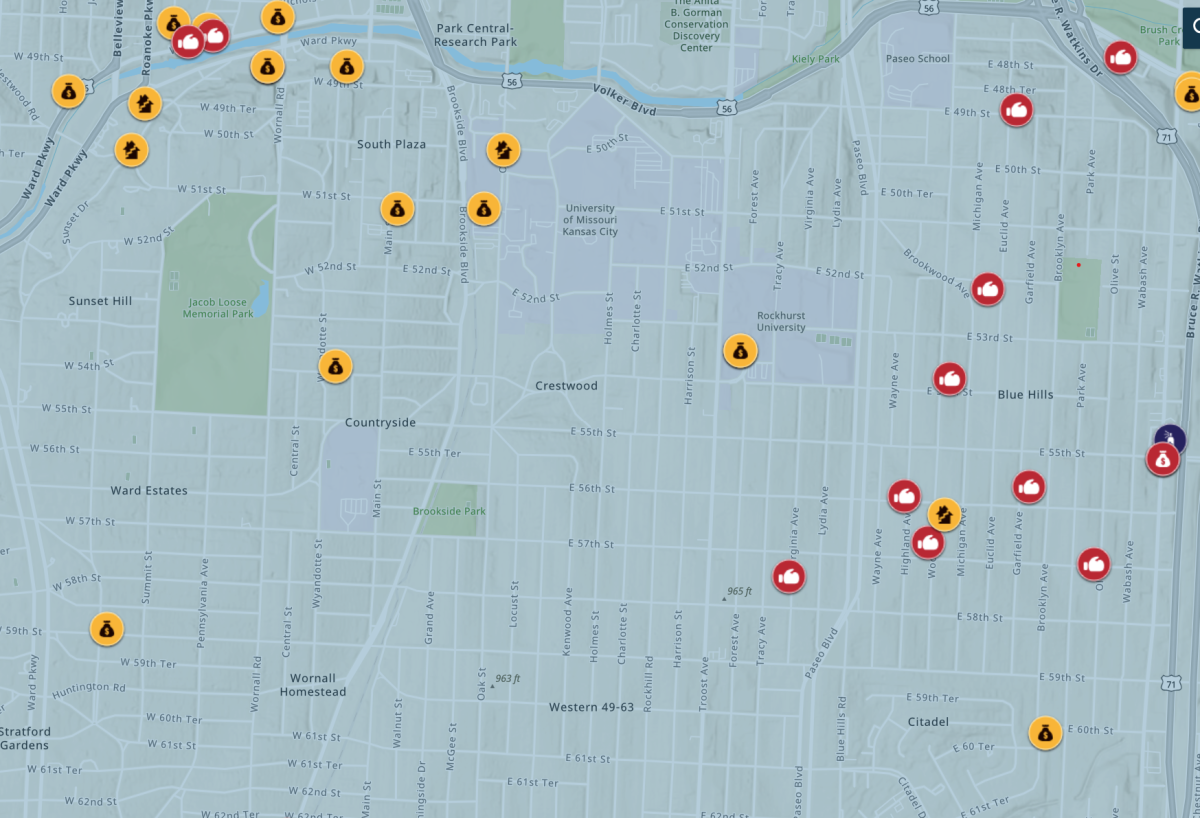
by Murphy Marx
Sitting in Latin class, listening to Ms. Sue Marquis, freshman Scout Distefano suddenly feels the urge to snap and bend something. Almost without thinking, Distefano reaches for her hands, twisting and stretching each finger until she hears the pop of the knuckles.
Dr. Mark Rasmussen, an orthopedic surgeon, revealed some misconceptions of the habit of popping knuckles.
The first misconception about popping knuckles is that the habit will cause arthritis in the hands. Instead, other damage to the hands such as stretched ligaments may appear after years of popping knuckles, according to Rasmussen.
‘I tell [patients] not to do it,’Â Rasmussen said. ‘It isn’t necessary to do.’Â
When people pop their knuckles, the synovial fluid, a fluid much like raw egg which covers the ligaments, loses pressure, according to Dr. Dimitrios Pappas of The Johns Hopkins Arthritis Center. Then bubbles form in the fluid, and when the joint is bent far enough, the bubbles burst, causing the cracking noise.
St. Teresa’s Academy students and staff hold different views and opinions on the habit of popping knuckles. Distefano said that she wishes she could stop popping her knuckles because she knows of the possible damage it may cause to her hands. She said the sound of the knuckles popping annoys her, even if she is the one making the noise.
Sophomore Caroline Connor says that she chooses to not pop her knuckles and does not believe she ever will.
‘I’ve never popped them before,’Â Connor said. ‘I just don’t find the need to.’Â
Speech and debate teacher Ann Heid finds that the habit annoys her; thus, she has not popped her knuckles in a long time.
‘[We] all used to do it until our mothers told us it caused arthritis,’Â Heid said. ‘That is when I stopped.’Â
Another myth about popping knuckles is that the habit is very damaging to hand tissue. According to Rasmussen, the habit is neither good nor bad.
‘[Popping knuckles] creates negative pressure in joints,’Â Rasmussen said. ‘Some do feel better after popping them.’Â
After the knuckles are popped, most feel more mobility and looseness in the hands. According to SixWise.com, the sound the knuckles make when they are popped is most intriguing and is the reason why some continually pop.
The loud noise can sometimes disrupt the teacher from what he or she is doing and also then disrupt the class, according to Heid.
Connor finds that the sound the knuckles produce is what pushes her away from popping her knuckles.
‘I usually cringe up inside,’Â Connor said. ‘Sometimes I feel like running out of the room when I hear it.’Â
For many, this habit starts most likely in grade school and continues through high school. In some cases, siblings and friends can influence them, then instilling the habit in them.
‘My sister [popped her knuckles],’Â Distefano said. ‘And I wanted to do everything she did.’Â
As the child grows older, the habit becomes almost involuntary, as most do not realize what they are doing with their hands. Distefano finds that she is popping her knuckles regularly without thinking of what she is doing.
For habitual knuckle poppers, some damage will be present over a period of time. According to Dr. Dimitrios Pappas, rheumatology specialist at the Johns Hopkins Arthritis Center, the tissue in the hands, especially around the joints, becomes soft. When tissue becomes soft, the grip of the hand is weakened and loosened. Possible dislocation of the tendons is also a side effect of popping the knuckles.
Distefano said that by knowing the facts, she may be more encouraged to stop popping her knuckles and break the habit.





